For over thirty years, Vincent D’Onofrio has been making a name for himself as a reliable character actor with memorable roles in Stanley Kubrick’s Full Metal Jacket, and working with filmmakers like Oliver Stone, Tim Burton and Robert Altman. In recent years, D’Onofrio has reached new fans with his television work, particularly playing Wilson Fisk AKA the Kingpin on Netflix’s Daredevil.
In 2010, D’Onofrio made his directorial debut with the thriller Don’t Go in the Woods, and he’s remaining in genre with his second film as director, the Western The Kid.
On the one hand, the “kid” of the title could be referring to “Billy The Kid,” played by Dane DeHaan (Valerian and the City of a Thousand Planets), but it’s more likely that the title refers to 14-year-old Rio, played by newcomer Jake Schur, who enlists the aid of Billy and his pursuer, Ethan Hawke’s Sheriff Pat Garrett, in retrieving his sister (Leila George) from their malicious and abusive uncle, as played by Chris Pratt. (Those who saw Antoine Fuqua’s Magnificent Sevenremake will realize that The Kidreunites D’Onofrio with two of his co-stars from that Western.)
THE BEAT spoke with D’Onofrio last week about the movie.
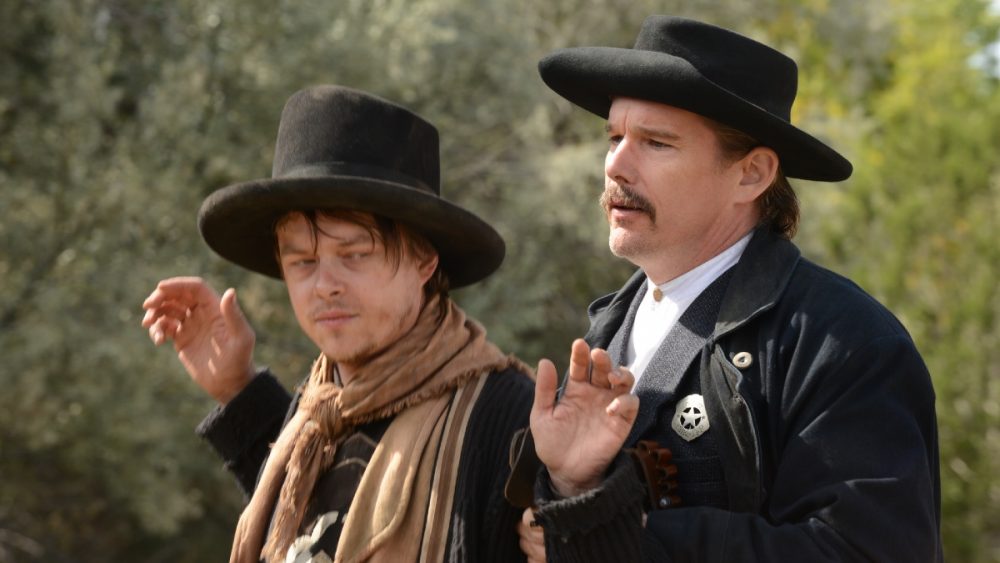
THE BEAT: It’s really impressive to do a Western as your second movie as a director, since there are so many moving parts, including animals. What made you want to do that?
VINCENT D’ONOFRIO: Well, I always did want to do Westerns. It was like a kind of dream, but what I really wanted to focus on… As I get older, I think of the men in my life, who have influenced me in good and bad ways. That’s really what I wanted to do with that. I think that the idea of iconic characters, the impression that they leave on us, and so I wanted to think of that, to do a movie with the point of view of a young man. I remember not considering the rock stars’ wake of destruction, that they leave behind them in other people’s lives and in their life. Just the fact that they’re a rock star and they’re free, they have this free way like a bandit, like Billy the Kid. At a young age, you don’t consider what damage that does to them and to other people throughout their life, so it was like that.
The thing about Pat Garrett and Billy the Kid is that it’s a good story to place a fictional character in because there’s, you know out of all the bandits from back then, there’s a lot of information about Pat Garrett and Billy the Kid. I think because there’s Pat, was a law enforcer, he was a cop and you can track his movements because of what he accomplished and where he lived and his wife and it’s … So there’s a lot of actual, factual information about where Billy the Kid was, why he was there, where Garrett was, how Garrett knew that Billy was going to end up where he was.
And I thought, “Well what a perfect story to then just inject this fictional character into.”
THE BEAT: It’s interesting you refer to the bank robbers as rock stars, since I would assume many robbers just started robbing banks because they needed the money and that was an easy way to get it. I guess they were made celebrities by the way their crimes were covered in the press?
D’ONOFRIO: Well, that’s what I’m thinking. I’m thinking that this life of freedom, of not answering to the man and being able to not have a job and just rob people for their money. It’s a romantic sense of it, for sure, but from the eyes of a young boym, I remember when I was a kid and I met my first real men. Some of them were not such nice people, but they were iconic to me. I thought they were cool when in fact they were not cool, and then I met my stepdad who was a Firefighter. He basically is the guy that took me off the streets and straightened me out and he was an iconic character to me in my life, and he was a good man. His influence won me over, and so that’s what I mean. It’s a kind of romantic sense about it — I understand that — and also, because it’s a Western and the whole mythological aspect of Westerns, you can get away with romanticizing it a little bit.
THE BEAT: We spoke at Toronto for “Magnificent Seven” and I’m not sure if this was on the horizon at that point. Was this something you’d already been looking at or working on with Andrew to write it or?
D’ONOFRIO: Yes, yeah, it is. We started writing it when I was doing The Judgewith Downey.
THE BEAT: That’s interesting, because when you were talking about Westerns and your love for them, I had no idea you were developing one of your own. How did you hook up with Andrew Lanham to write the script?
D’ONOFRIO: Well, I read his stuff after he was recommended to me. There were two writers recommended to me, and I needed to find somebody that was able to understand that I’m the type of guy whose gonna have a story and a structure that I think of. In reality, I didn’t want to disturb his process, but I needed somebody that was open enough to understand that, that’s how I want to work, and that it’s a story that I need for them to understand for me. Not only did many of the details, but the actual bit of the structure so that when they start writing, we can be on the same page and come up with the story that’s been in my head. And Andrew was the, you know, eventually turns out to be the perfect guy. And everything he wrote was gold and his screenplay really comes very close my original thoughts about the movie.
THE BEAT: Jake Schur is a pretty amazing find as Rio and he shares a last name with the producer, is he actually related to the producer or how did you find him for that role?
D’ONOFRIO: Yeah, it’s his son, and you know Leila George is my daughter.
THE BEAT: Oh wow, I didn’t know that.
D’ONOFRIO: Yeah, so I met Jake early on when he was like nine, years ago when I was doing a film that Jordan was producing. When Jordan finally told us that he wanted to finance the writing of the movie, he was at the offices, Jake was there, and I started talking to Jake and I asked the guys from the office if they would excuse me and Jake, and we went into another office at my manager’s building at Silver Lining, and I gave him an acting exercise, and he pulled it off. And then I tried to let it go. And when it finally came around to casting, I was dreading when they were gonna ask me to start looking for boys. Instead of saying, “Okay, let’s get started,” it just sort of came out of my mouth, “I think I know who I want to play the part, but I just have to ask his dad,” and then I asked Jordan. I said, “Look, my daughter’s playing Sara, why not have your son play Rio?” And that’s how it happened.
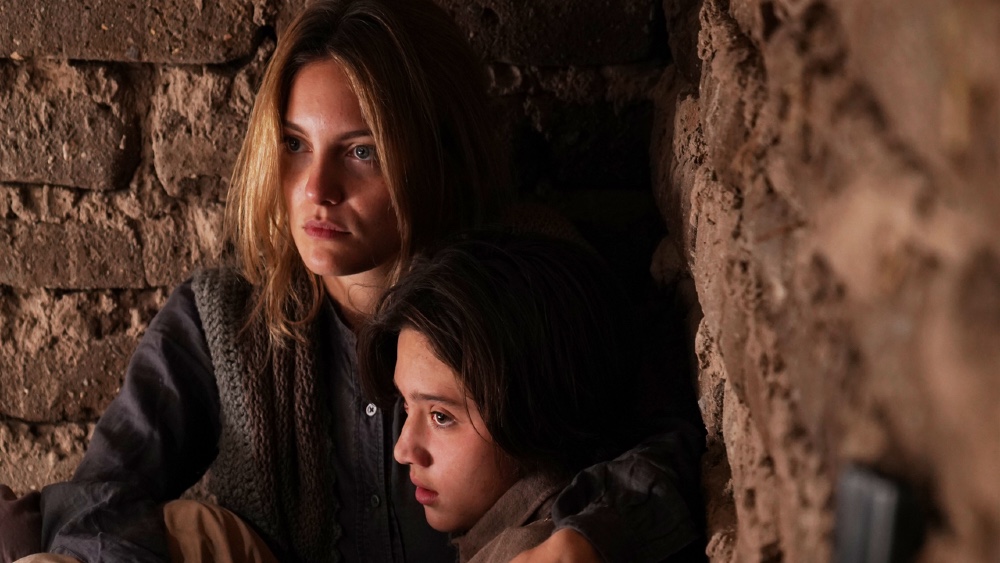
THE BEAT: They are both fantastic in the movie, and that’s a major gamble to put so much on their heads, though it really paid off. Jake has some significant scenes with your friend Ethan, and it’s amazing he was able to do it. You’d think he’d been acting for like a longer time even though he’s in his teens.
D’ONOFRIO: I think the kid is a pretty amazing kid. When he was eleven, he was reading Perkowski and watching films like My Left Foot and stuff like that. I mean that’s what drew my attention to him. He’s not a typical kid.
THE BEAT: Ethan’s is more of a no-brainer. You’ve been friends for so long, and he’s an amazing actor but he just keeps getting better and better, although this is his third Western in a few years.
D’ONOFRIO: I feel the same way about Ethan as what you just said, and he’s one of my friends. It would have been hard for him to escape playing Pat Garrett for me, because that’s who I wanted to play him, and I wasn’t gonna let him say “no.” We’re so close. Our families know each other and everything, so I mean, what are you gonna say? If you’re gonna do a kind of romanticized version of Pat Garrett, he’s the guy.
THE BEAT: Whenever actors direct movies, I’m not sure if there’s added pressure, but I feel like critics and journalists go into a movie like “Show me what you can do,” so that you have to prove yourself, even filmmakers like Clint Eastwood who have been directing for years. Some actors who direct also put themselves in the movie so they can direct the other actors with their own acting. You only have a small role in the movie, so can you talk about your decision not to direct and act at the same time?
D’ONOFRIO: Yeah, no. I didn’t want to be in this, but it was part of the package to get the financing, so I gave myself the smallest part possible. I really don’t have the urge to star in a movie that I’m directing. I’m gonna do another one we’ve just started putting into development now. I won’t be in that one. It’s not that it’s hard or anything it’s just that I really love acting, and when I’m acting I’m really, very into it. I don’t even think about it when I think of directing. I think about directing other people, not myself.
THE BEAT: Did you use some of the same settings as “Magnificent Seven” or “In The Valley of Violence,” Ethan’s other Western?
D’ONOFRIO: Well, Magnificent Seven, we shot most of it in Baton Rouge, and then for the last few weeks we went to New Mexico and we used a couple of the old sites they have there. We used the one that I think was for the original True Grit. When we were doing Mag Seven, we used the hut from that movie, there’s like four or five Western camps between Santa Fe and Albuquerque, and we used I think three of those in total. None of the same ones that were in Mag Seven though.
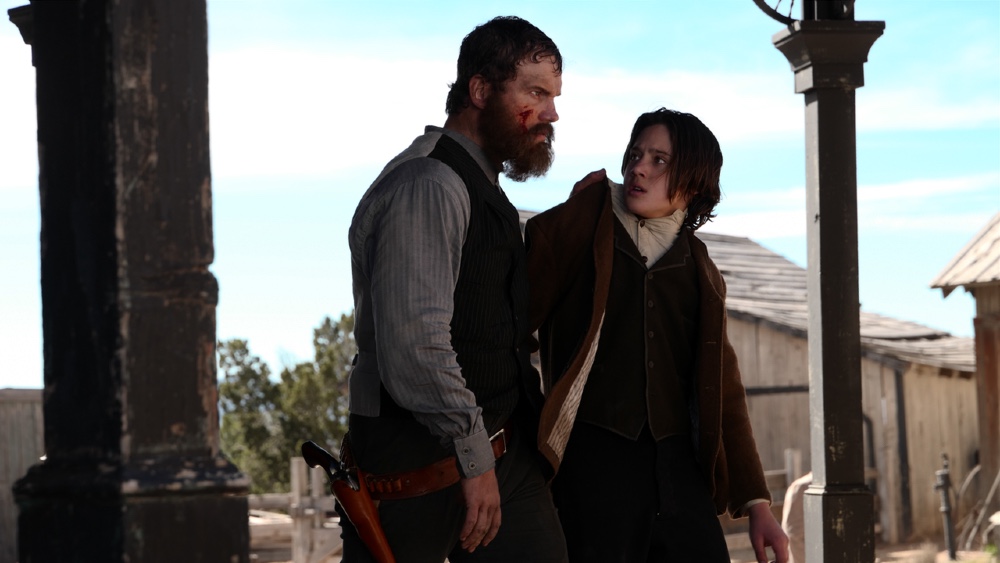
THE BEAT: I also want to talk about the music, because I thought that was one of the things about the movie that made it a little less traditional than, like Westerns have a very traditional kind of score a lot of times. Can you talk about getting the Gaines to do the music?
D’ONOFRIO: Well that’s the Gaines brothers. I’m glad you asked about them, because they’re fantastic. I met them through theater, and I don’t know if you know any story behind those guys, but they’re brothers – one’s a toy maker and the other one’s a music producer, and they’re both incredible singers and musicians. I went to Shelby Gaines, and I said, “Would you and your brother do this for me?” He read the script and said he would do it, and then he said, “This is what we’re gonna do. We’re going to build a shack in Virginia and we’re gonna build every instrument that we play from materials that instruments don’t usually use.” The whole film is scored by instruments made by them and played and recorded in this shack.
THE BEAT: Did they start working on it before you started filming it or after you finished the edit?
D’ONOFRIO: No, they started building the shack as soon as I wrapped the shooting.
THE BEAT: That’s pretty cool, and I think it makes a difference in setting your movie apart from other Westerns.
D’ONOFRIO: All the vocalization that they’re doing, that you hear, is also the Gaines brother.
THE BEAT: You’ve been doing a lot more television lately, so do you feel there’s more consistency there as an actor doing TV?
D’ONOFRIO: Yeah, it’s true. It’s because I can work in New York and I don’t have to commit to six, seven years on a project. I can do a year here and a year there. Right now, I’m doing Ryan Murphy’s new showRatched [for Netflix], and I’m doing Godfather of Harlem in New York, and I’m about to start Ernest Dickerson’s show called Interrogation in Albuquerque. can play these supporting parts in all this streaming content with really talented people and not have to commit my life away and jump into a film whenever I feel like it, while also developing my own stuff. This is what it should be like when you’ve done acting for this long, and it’s a nice place to be. I work really hard at it and try to be the best I can for these people and I love the position that I’m in right now, so it’s a good one.
The Kid is now playing in select cities across the country.


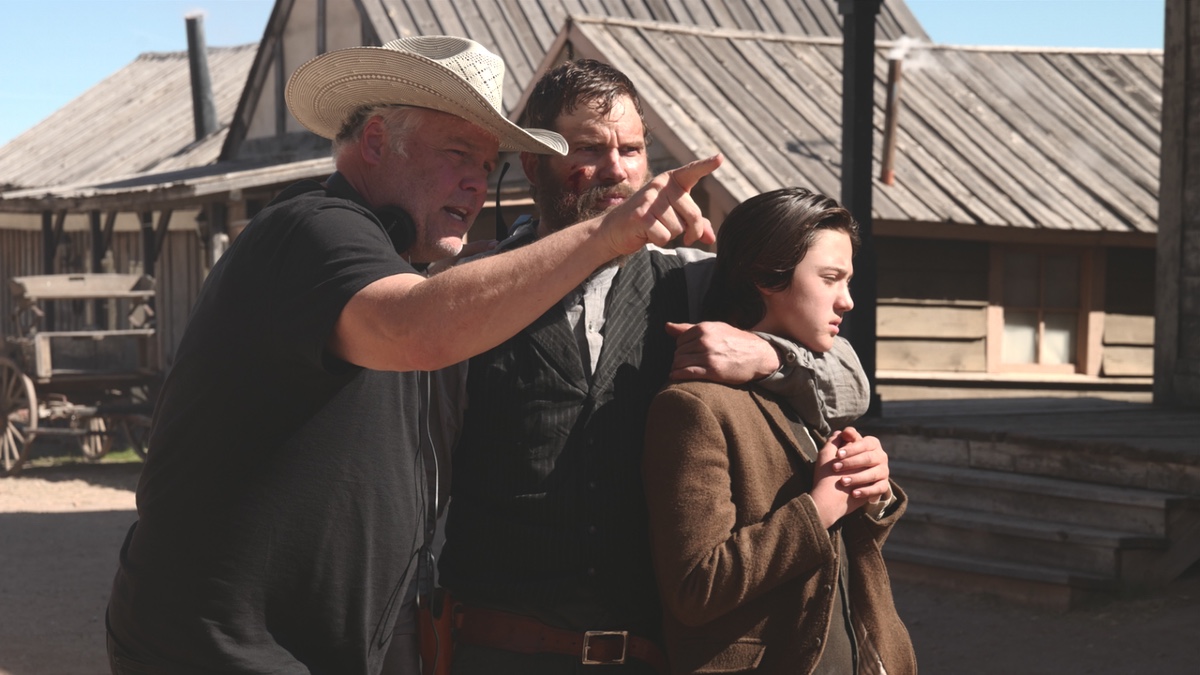
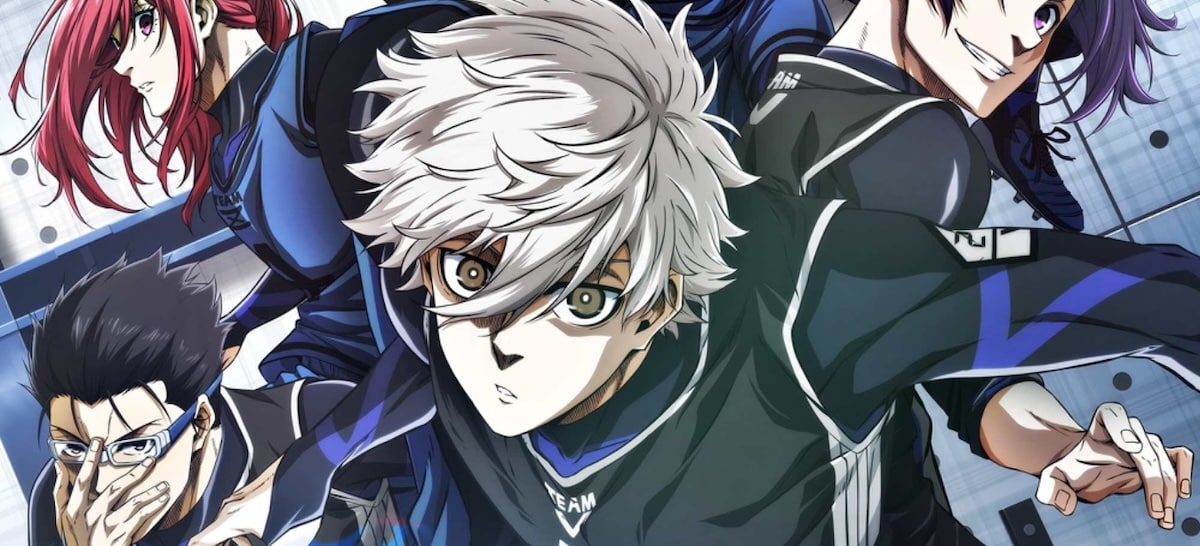

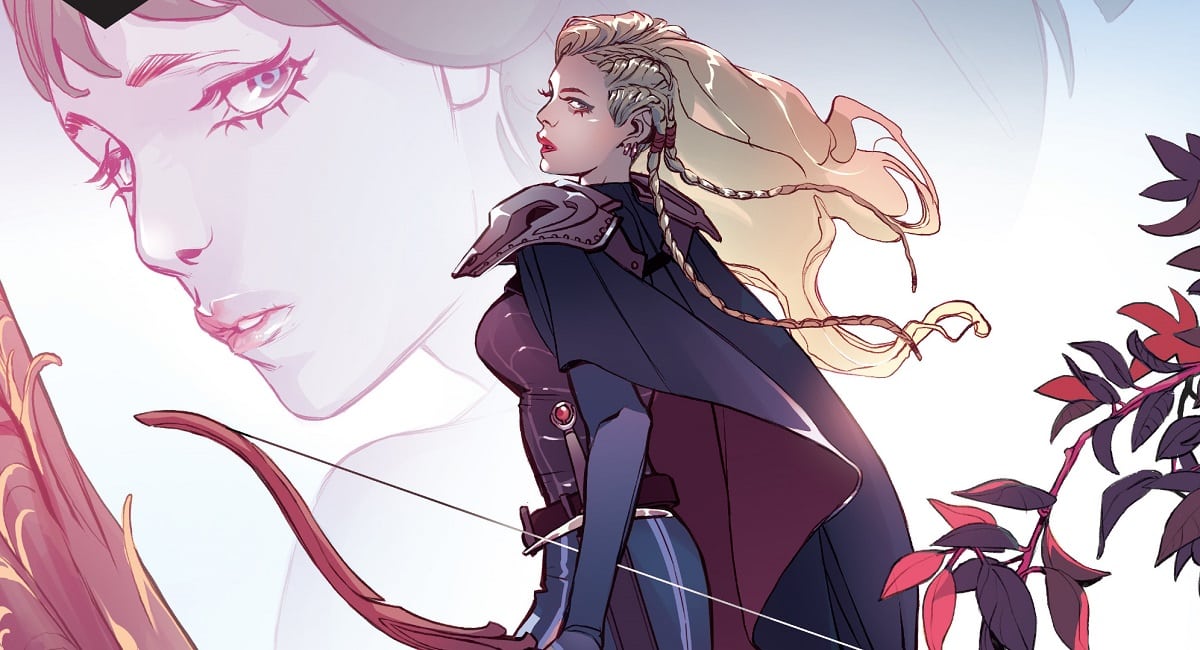



I’ve been a massive fan of D’Onofrio, because of and since L&O: Criminal Intent (Goran gets his own single-name monicker as far as I’m concerned). So glad D’Onofrio is out there, and I check out everything he’s in. So totally up for seeing this. And Ethan Hawke!
Very curious to see this even if I have an allergic reaction every time I see Ethan Hawke, I do have so much respect for D’Onofrio and I’m curious as to his take on the Billy the Kid mythos. I can vividly remember seeing the film “Young Guns” with family as a child and being very involved in it and then an Uncle casually remarked, “of course, none of that even happened in real life” which had such a profound effect on me that I then went out to public libraries and found every book on The Kid/Pat Garrett that I could. Vincent D’Onofrio has so much creative integrity that I’m sort of bound to pursue his work regardless. I’ll trust him, now to seek this out…
Favorite D’Onofrio roles: Orson Welles in “Ed Wood” and Robert E. Howard in “The Whole Wide World.”
Comments are closed.